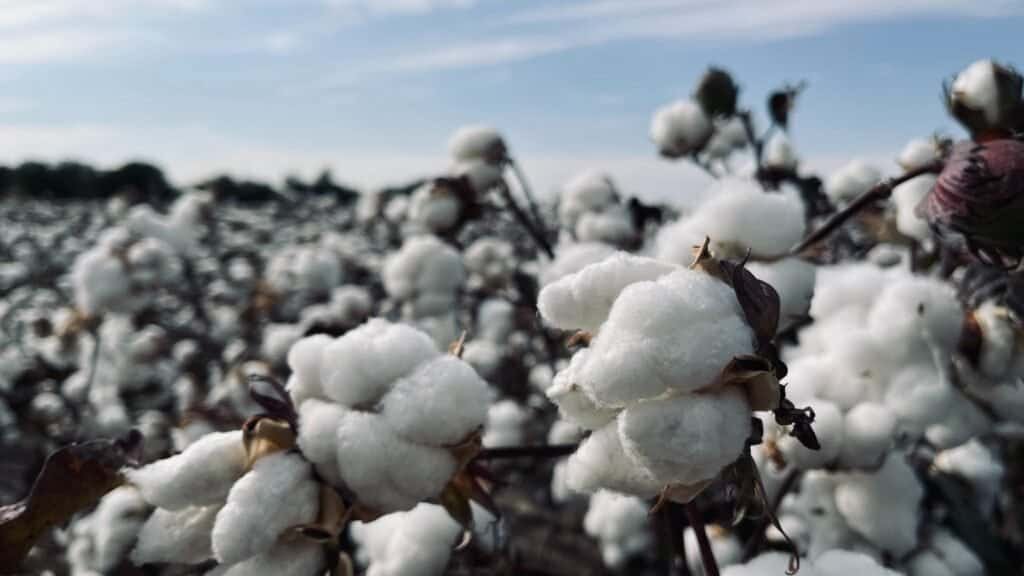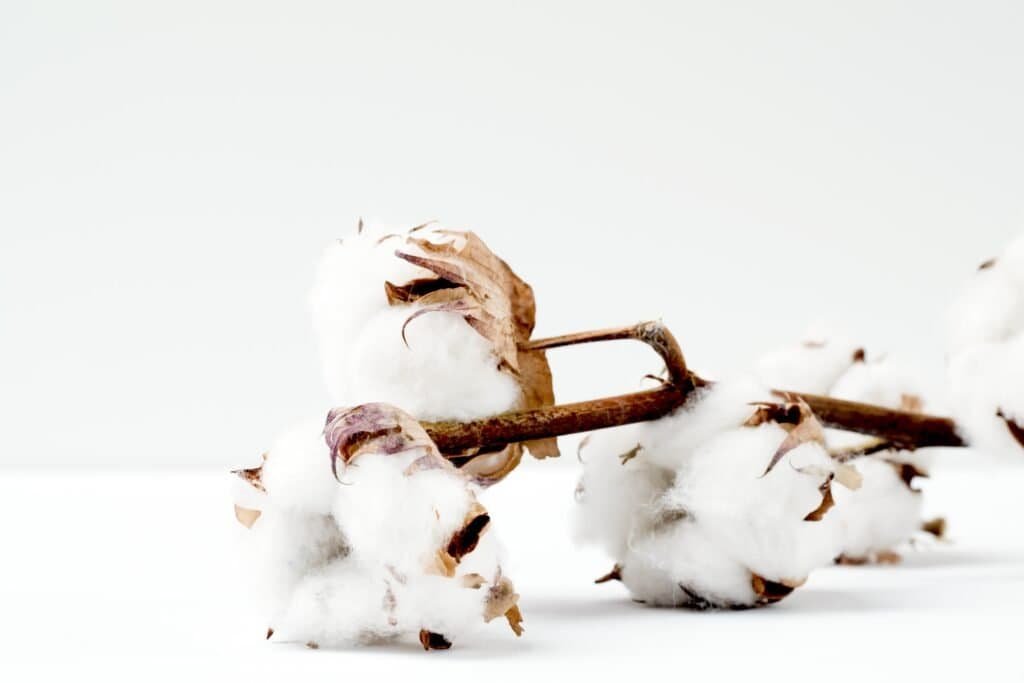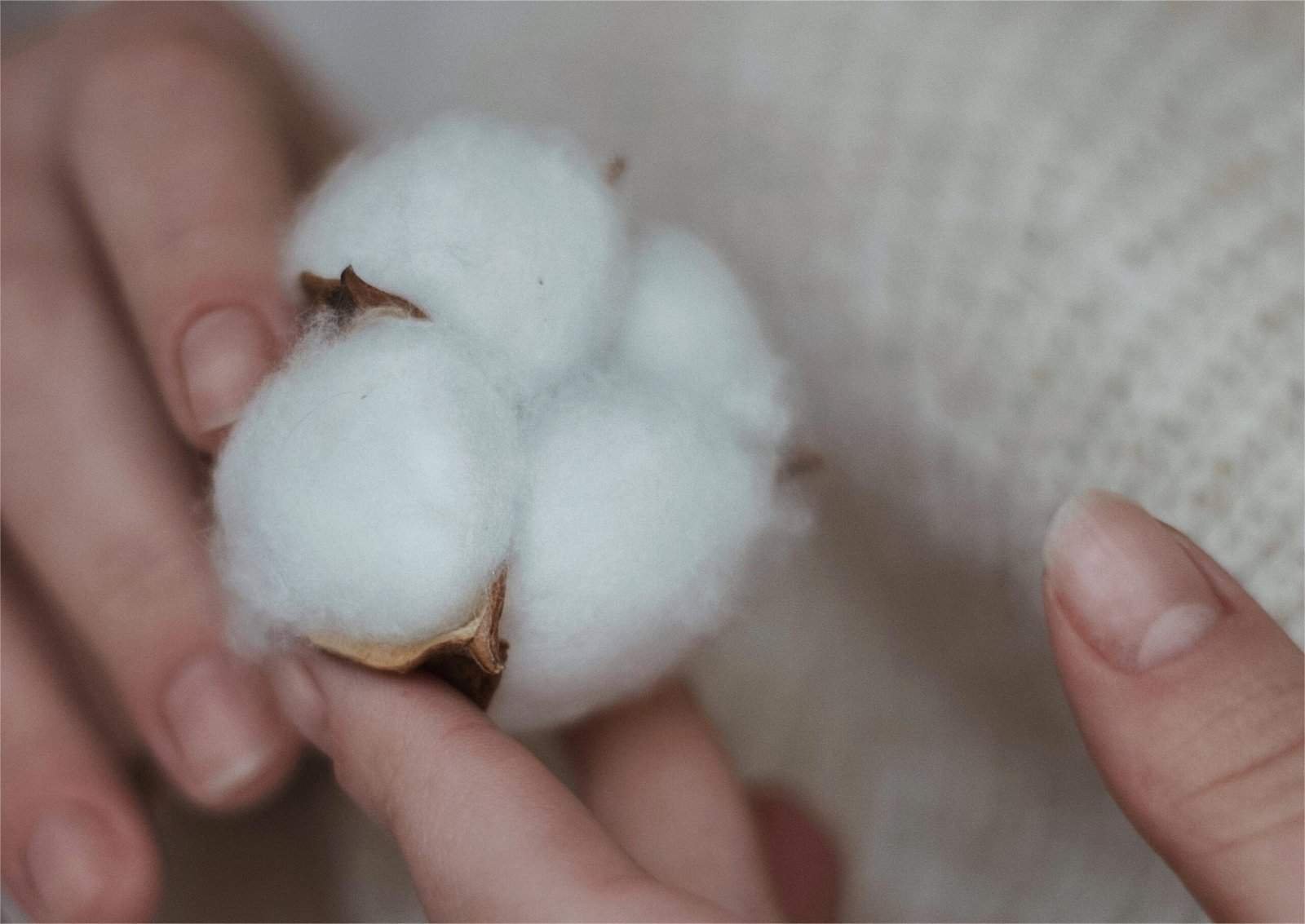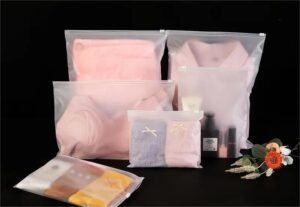As we all know, cotton is one of the most important raw materials in the textile industry. Currently, about 70% of global textiles are made from cotton. As a natural fiber, cotton has characteristics such as softness, heat resistance, and easy dyeing, which are deeply loved by consumers and has been widely used in various textile fields, such as clothing, home textiles, towels, etc. So, cotton is playing an important role in the textile industry. Cotton can be varied into two kinds: organic cotton and regular cotton. You might be wondering what are the differences between them? Let me tell you, these two kinds of cotton have differences in cost, quality, durability, etc. More specific differences will be explored in this article. So, if you want to understand the differences between organic cotton and regular cotton, you must continue reading this article.

What is Organic Cotton?
Organic cotton is a pure natural and pollution-free cotton. During the planting process of this type of cotton, people will use organic fertilizers, biological control and other methods to prevent diseases and pests. It is not allowed to use chemicals during the planting process. The fabric made of organic cotton has a bright luster, a soft feel, excellent elasticity and wear resistance. Organic cotton can also resist bacteria and prevent odors. Furthermore, it can alleviate allergic symptoms and skin discomfort caused by normal fabrics, such as rashes. So, it is more commonly used for children’s clothes.
However, the planting process of organic cotton has high environmental requirements. The organic cotton planting base must be selected in areas where the atmosphere, water, and soil are not polluted. There should be no factories or other pollution sources in the surrounding area. At the same time, pollution from genetically modified crops should be avoided. It is necessary to ensure that there is no industrial pollution within a 200 square kilometer radius of planting organic cotton. There are also many environmental protection measures in the planting process of organic cotton, such as not using pesticides or growth regulators. These measures can prevent pollution during the planting process of organic cotton, which is beneficial for protecting the environment and climate on earth.
Organic cotton has many benefits. On one hand, it can help to protect the environment on earth. Organic cotton is cultivated naturally without the use of chemicals such as fertilizers and insecticides. It has a 100% natural ecological growth environment and is pollution-free from seeds to harvest. So, it is beneficial for environmental protection. On the other hand, organic cotton is good for our health. Organic cotton is completely different from regular cotton fabrics and does not contain any toxic or harmful substances to people. Even people with sensitive skin can wear clothes made by organic cotton. Some people’s skin is very sensitive and cannot adapted to harmful substances. So, choosing soft, warm, and breathable organic cotton clothing can make people feel very comfortable and smooth and will not irritate the skin.
What is Regular Cotton?
By now, you’ve had a basic understanding of organic cotton, but what is regular cotton? Regular cotton, also known as conventional cotton, is a kind of cotton which is machine picked and is heavily treated with various substances, most of them toxic. Regular cotton has strong alkali resistance and is not easily corroded in alkaline liquids. Meanwhile, ordinary cotton has a good ability of water absorption, it can absorb moisture from the air, so people feel comfortable when wearing regular cotton clothes.
Now, this article will introduce you the traditional production process of regular cotton. Firstly, people will select cotton seeds and start sowing around April each year. Secondly, when cotton reaches a certain height, chemical pesticides will be sprayed on it to prevent diseases and pests. Thirdly, people spray growth promoting agents on slow-growing cotton to promote its rapid growth. Finally, people will pick cotton with the help of harvesters.
Compared with organic cotton, regular cotton has several drawbacks. For instance, clothes made of regular cotton shrink easily after being washed. Besides, the chemicals in regular cotton clothes might cause rashes on your skin. What’s more, regular cotton can also raise environmental concerns. During the planting process of regular cotton, a certain amount of chemicals is used to prevent cotton from harmful insects. Many people worry that this action will cause serious environmental problems such as air pollution, and this might be the biggest drawback of regular cotton.
Organic Cotton vs. Regular Cotton

Since we already learned the definition of organic cotton and regular cotton, let’s make comparisons. In this part, we will discuss their differences in the following four aspects: environmental impact, quality and durability, cost and availability and health and safety. Let’s get started.
1. Environmental Impact
Environmental protection is now a problem that many countries attach great importance to. The production process of organic cotton hardly poses any harm to the environment. People will reduce their impact on the environment through methods such as organic fertilizers, biological pest control, and natural farming management. However, when planting ordinary cotton, a large amount of pesticide is used, which causes air pollution and is not conducive to human health.
To be specific, there are huge difference between organic and regular cotton in water usage, pesticide use and soil health. Organic cotton cultivation can reduce water usage by 91%, as 80% of organic cotton is grown in dry land. Through composting and crop rotation techniques, the soil has more water absorption and increases the effectiveness of water usage, so watering is not frequently needed. Regular cotton, on the other hand, consumes a large amount of water during the planting process. Besides, spraying pesticide during planting process is forbidden when it comes to organic cotton, while regular cotton needs pesticide to prevent insect pests. Using pesticide leads to damages to soil health. The pesticides used in the planting process of ordinary cotton can reduce soil fertility and biodiversity, and can cause soil erosion and degradation. Organic cotton planting can reduce acidification by 70% and soil erosion by 26% , and will improve soil quality in the long term.
2. Quality and Durability
All in all, the quality of organic cotton is much better than that of regular cotton. The reasons are as follows. Let’s compare the quality of these two kinds of cotton first. Regular cotton has basically no elasticity, while organic cotton has good elasticity. Compared to organic cotton, regular cotton has a certain shrinkage rate, so it is prone to shrinkage during the cleaning process. In addition, regular cotton is prone to wrinkles and requires frequent ironing. These two kinds of cotton also differ in texture. When you touch the fabric, organic cotton feels warm and soft because pure natural fabrics make people feel comfortable. Contrarily, the surface of ordinary cotton is relatively rough. So, it feels less smooth than organic cotton when people touch it. What about durability? Due to the absence of harmful substances in organic cotton fabrics, their fibers are sturdier. And in the production process of organic cotton, a more environmentally friendly production method is adopted to reduce fiber damage, making organic cotton fabrics have better durability. Compared with organic cotton, the durability of regular cotton is much worse.
If you think I’m exaggerating about organic cotton, let’s hear some words from experts and users. Sabine Ferenschild, a sustainable textile and organic cotton expert at the S ü dwind-Institute in Germany, pointed out that organic cotton has higher quality and less environmental harm than regular cotton. Consumers of organic cotton clothing also believe that compared to regular cotton clothing, organic cotton clothing can be worn for a longer time.
3. Cost and Availability
Due to the high production requirements of organic cotton, the yield of organic cotton is low. In addition, the production process of organic cotton requires more manual labor and resource input, so the cost of organic cotton is higher. Generally speaking, the cost of producing one kilogram of organic cotton is three times that of regular cotton. Therefore, it is east to understand why the price of organic cotton is higher than that of regular cotton.
Different markets also have different demands for organic cotton. The global organic cotton market is divided into North America, Asia Pacific, Europe, South America, the Middle East, and Africa. Due to the high demand for organic cotton in end-use industries such as healthcare, clothing, and cosmetics, the Asia Pacific region holds the largest share in the global organic cotton market. At the same time, due to the rapid development of the medical and cosmetics industries, the demand for organic cotton in North America is increasing. Therefore, compared to regular cotton, organic cotton has a larger market.
4. Health and Safety
Organic cotton has many benefits to people’s health and safety. To begin with, organic cotton clothing has good breathability, fast sweat absorption, and does not generate static electricity, and it can prevent eczema in children and is beneficial for people’s skin health. Next, organic cotton can maintain a constant temperature. So, organic cotton clothing has good insulation performance, which can prevent people from catching colds. Last but not least, organic cotton is a natural fiber with a soft and comfortable texture. Organic cotton clothing is very suitable for people with sensitive skin and newborn babies.
On the contrary, people have some concerns over regular cotton. On one side, people sprayed pesticides to regular cotton in various stages such as seedling, maturity, and picking. Pesticide residues will forever remain in cotton fibers, eventually entering the human body through sweat and pores, which will affect people’s health in the long run. On the other side, although regular cotton has good sweat absorption performance, it does not dissipate moisture. Therefore, regular cotton is difficult to dry in a short period of time after sweat absorption. Suitable temperature and humidity, as well as sebum and dandruff, constitute a breeding ground for bacteria. Within 8 hours after sweating, the human body is capable of breeding millions of bacteria, which can infect people’s body and pose great health risks.
How to Choose Between Organic and Regular Cotton?

Now, you must be wondering how to choose between organic and regular cotton. Here are a few tips for your reference.
- Tip 1: Be clear about your needs. You should always remember the purpose of buying your clothes. For example, if you want to purchase clothes with bright colors, you can choose the one made of organic cotton since organic cotton can be dyed into more colors than regular cotton.
- Tip 2: Take your physical conditions into account, especially the sensitivity of your skin. If you are allergic to most chemicals, you should not choose clothes made by regular cotton. But if your physical conditions are good, then it is OK to purchase clothes made by regular cotton.
- Tip 3: Consider your budget. Though organic cotton has many benefits, there is one thing bad about it, that is the price is a little high. So, carefully consider how much you want to spend on your clothes before making your decision so that you won’t have any regrets after your purchase.
Besides, there is one thing you should remember: always look for certifications when buying organic cotton products. For instance, you should ask for the qualification certificate of organic cotton’s planting base. What’s more, you also need to check the fabric composition table to determine the organic cotton content when buying organic cotton products.
To sum up, this article tells the main differences between organic and regular cotton. We now have the knowledge that organic cotton differs from regular cotton in aspects like quality, cost, safety and so on. Understanding these differences is of great importance for sustainability in clothing industry. After reading this article, you can select the right kind of cotton for you accordingly. If you do have further questions about these two kinds of cotton, please do not hesitate to contact us.





